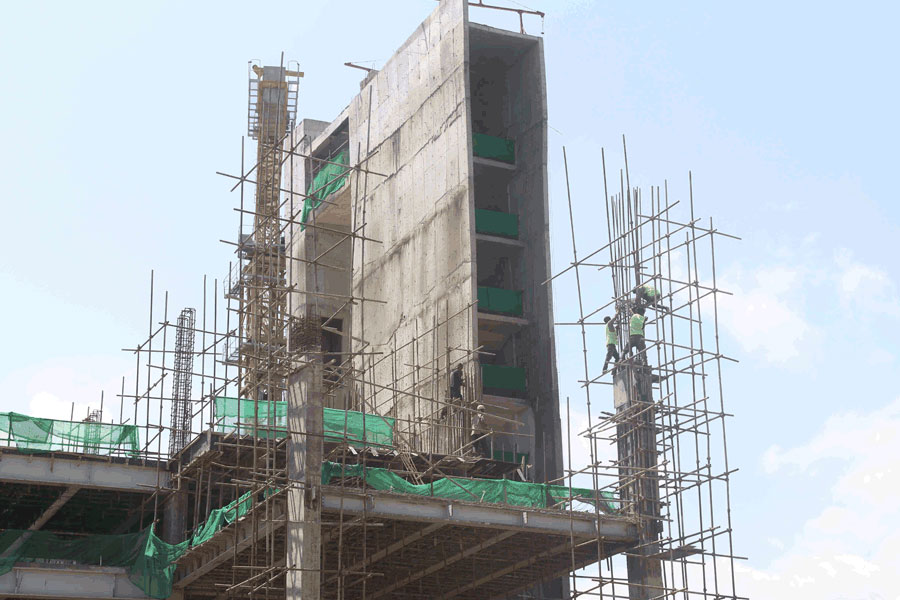
Fortune News | Sep 02,2023
The City Construction Bureau has taken over the responsibility of managing all construction projects in the capital with the primary aim of improving project administration.
Deputy Mayor Takele Uma ordered public offices in the city on January 14, 2019, to transfer all ongoing projects to the Addis Abeba Construction Bureau.
The new mandate enables the Bureau to prepare bidding documents, announce tenders, select contractors and consultants, clear land and fulfill infrastructure for any project that takes place within the city. Previously, the projects used to be managed by different offices under the City Administration using the supervision, consultancy and regulatory manpower of the Bureau.
The Deputy Mayor gave the direction following performance auditing that was conducted by the city’s auditor general and finance bureaus on pending projects taking place in the city.
The half-year project performance report has shown that out of the 718 ongoing projects in the reported period, only 384 were completed within the scheduled time frame, while 200 projects are delayed due to design revisions, land clearing, project administration issues and payment delays.
Beyond the delay, the audit also found that poor project quality was caused by hiring non-professionals.
For these delayed projects, the City Administration has allocated over two billion Birr this fiscal year, according to Yonas Ayalew, head of the city’s Construction Bureau.
More than 80pc of the construction projects in Ethiopia run over budget and experience delays, according to an article published by the International Research Journal of Engineering & Technology in March 2017, “A Critical Review of the Causes of Cost Overruns in Construction Industries in Developing Countries”.
Lack of proper cost planning and monitoring during pre-and post-construction stages, improvements to standard drawings during the construction stage and design changes, inaccurate quantity take-off, fluctuations in the cost of building materials and lack of planning and coordination are the significant causes blamed by the journal for project delays.
“The construction sector consumes 75pc to 80pc of the city’s aggregate budget,” said Takele, two weeks ago at a meeting that was held at Elilly Hotel, off Joseph Tito Street, with contractors and consultants operating in the city. “And it is highly exposed to corruption.”
The new change will enable public offices to focus on their regular activities,” said Afework Nigusse, deputy head of the Construction Bureau.
Tessema Negash (Com.), Deputy CEO of the Addis Ababa City Fire, Emergency Prevention & Rescue Agency, agrees with Afework’s view.
His Agency is currently considering the construction of emergency stations in Yeka Abado, Nifas Silk Laphto and Akaki which are to be handed over to the Construction Bureau.
“We’re ready to hand over the project,” said Tessema. “It will make us feel comfortable as the Construction Bureau will manage it well.”
The new procedure will also compel all of the contractors and consultants in the city to register at the Bureau to participate in any kind of projects in the city.
Yohannes Tadesse, a contractor at Tekleberhan Ambaye Construction (TACON), a well-known grade one contractor in the city, celebrates the change but believes the Bureau needs to re-organise its structure with qualified professionals.
“The Bureau has to organise itself with a staff that is accountable for better management of projects,” Yohannes said.
Yonas believes that the Bureau is already well equipped to handle the projects.
“We’ll properly administer the projects, as 95pc of the Bureau staff are professionals in the construction industry work,” said Yonas.
An expert with a decade of experience in civil engineering, Getaneh Terefe, applauds the move of the city administration to ensure proper project administration. He suggests that the professionals at the Bureau adhere to professional integrity in the process of design approval and tender process, which are prone to corruption.
As the scope of the Bureau has widened, it needs capable professionals from different disciplines such as urban planning, landscaping and architecture, according to Getaneh.
“It is time to upgrade the image of the city to have a harmonised design,” Getaneh said. “For this, engineering designs should be reviewed by external architects with ample experience in the field.”
PUBLISHED ON
Feb 02,2019 [ VOL
19 , NO
979]

Fortune News | Sep 02,2023
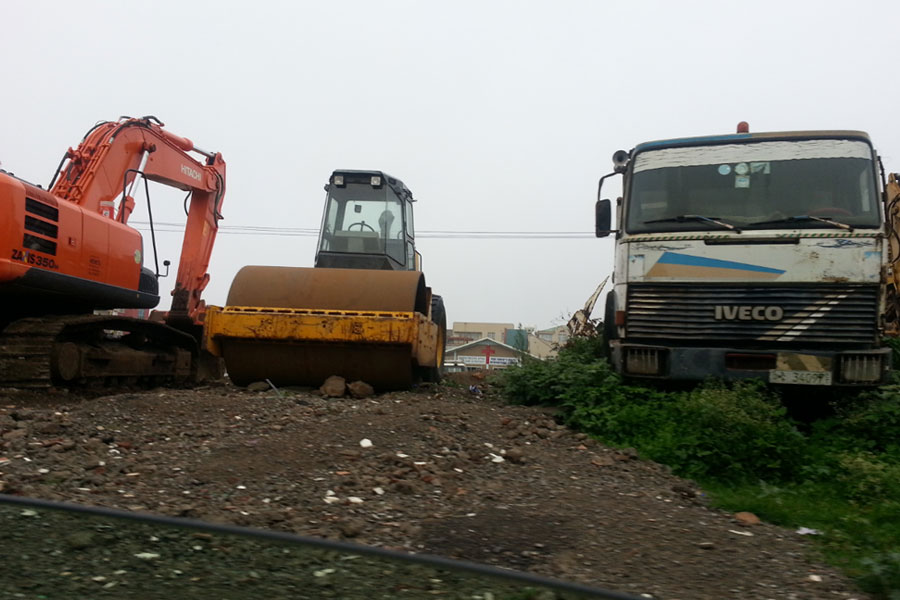
Featured | Jun 15,2019
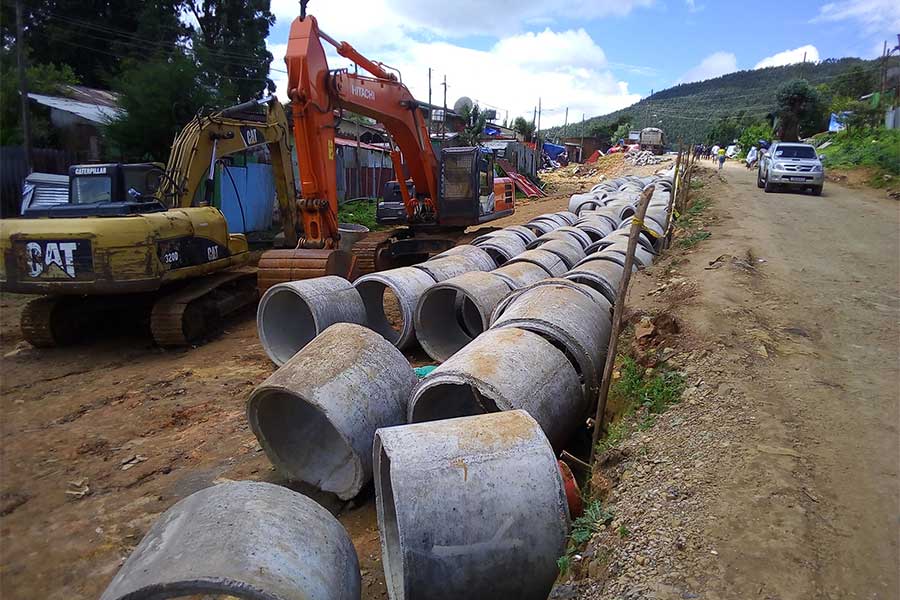
Radar | Jan 11,2020

Commentaries | Feb 11,2023

Fortune News | Jan 07,2022
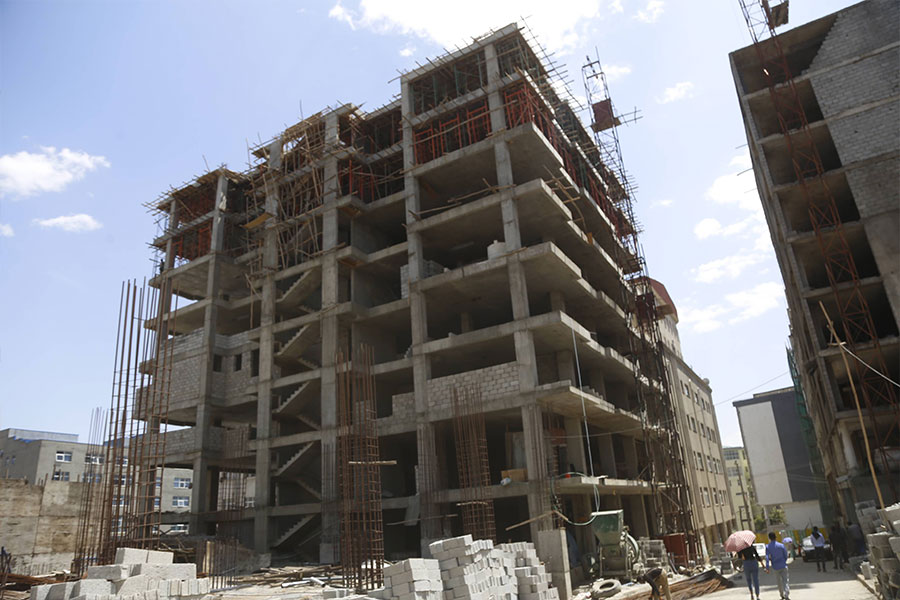
Fortune News | Oct 16,2021

Fortune News | Jun 23,2019

Radar |
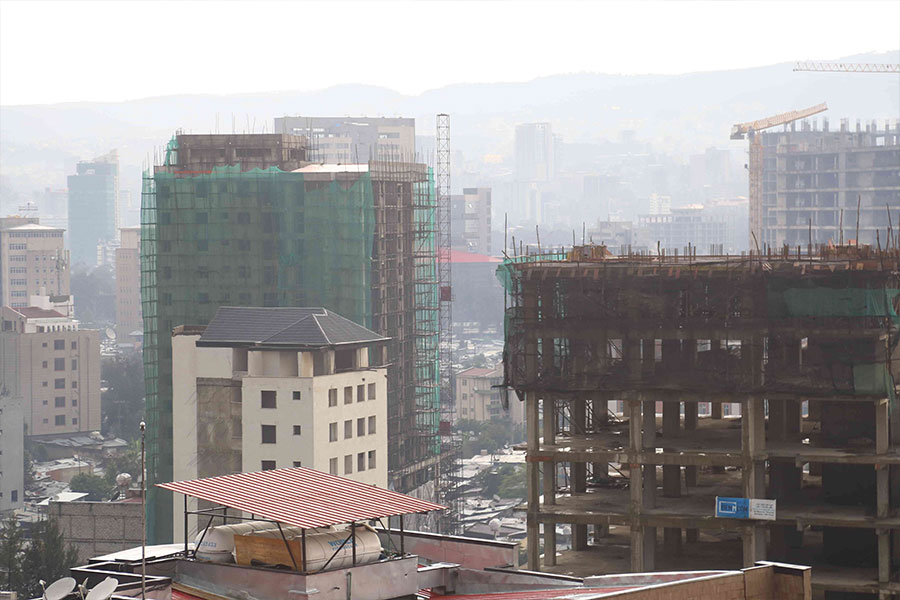
Fortune News | Dec 21,2022

Radar | Jan 01,2022

Dec 22 , 2024 . By TIZITA SHEWAFERAW
Charged with transforming colossal state-owned enterprises into modern and competitiv...

Aug 18 , 2024 . By AKSAH ITALO
Although predictable Yonas Zerihun's job in the ride-hailing service is not immune to...

Jul 28 , 2024 . By TIZITA SHEWAFERAW
Unhabitual, perhaps too many, Samuel Gebreyohannes, 38, used to occasionally enjoy a couple of beers at breakfast. However, he recently swit...

Jul 13 , 2024 . By AKSAH ITALO
Investors who rely on tractors, trucks, and field vehicles for commuting, transporting commodities, and f...

Oct 11 , 2025
Ladislas Farago, a roving Associated Press (AP) correspondent, arrived in Ethiopia in...

Oct 4 , 2025
Eyob Tekalegn (PhD) had been in the Governor's chair for only weeks when, on Septembe...

Sep 27 , 2025
Four years into an experiment with “shock therapy” in education, the national moo...

Sep 20 , 2025
Getachew Reda's return to the national stage was always going to stir attention. Once...